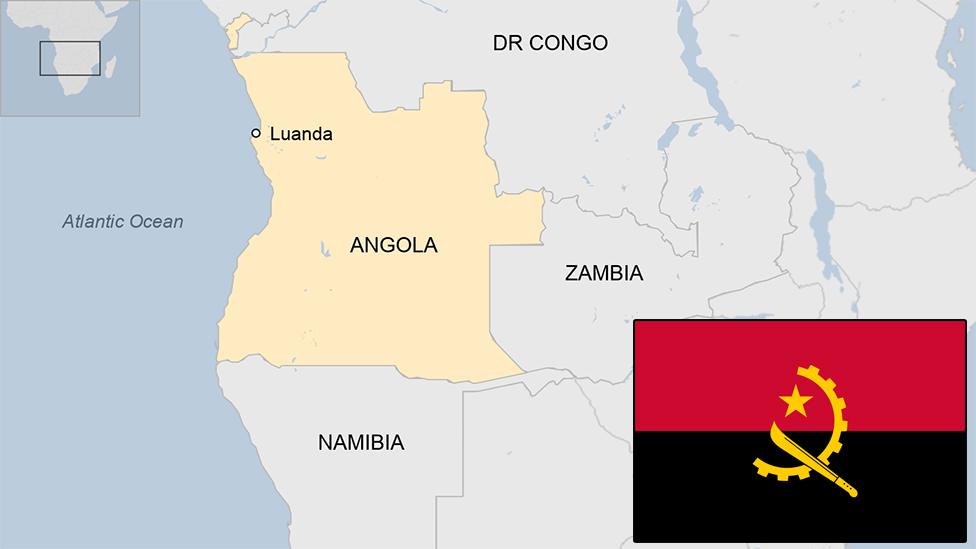Q&A: Angolan general elections
- Published
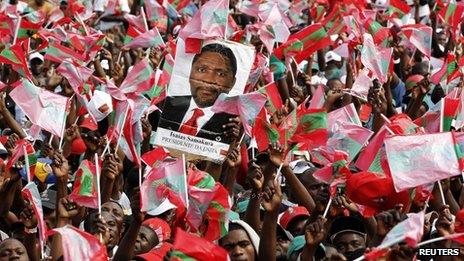
Voters in the southern African state of Angola go to the polls on 31 August in the first general election since the coming into force of the country's new constitution. This abolished direct election of the president, removed the post of prime minister and limited presidential tenure to two five-year terms.
The election is taking place amid complaints from the opposition that the date of the election - just three days after celebrations for the incumbent president's birthday - gives the sitting government an unfair advantage.
How is the president elected now?
Each political party must submit a list of their National Assembly candidates to the constitutional court. The person heading the list of the winning party is automatically elected as president.
The change from direct election was made in January 2010 by a parliament dominated by the ruling Popular Movement for the Liberation of Angola (MPLA).
How does the electoral system work?
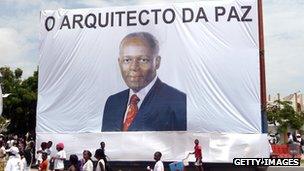
This poster in Luanda hails current President Jose Eduardo dos Santos as 'The Architect of Peace'
Every Angolan citizen over the age of 18 is entitled to vote. Voter registration is compulsory and some 9.7 million voters out of an estimated population of 21 million have been registered ahead of the elections.
Voters will directly elect 220 members of the National Assembly for a five-year term. Members of the Angolan diaspora will not be able to vote after the National Electoral Commission (CNE) in July decided to cancel their participation.
The process will be overseen by the CNE, but the Constitutional Council will announce the results and is the final authority on electoral matters.
Which are the major political parties?
Nine political parties and coalitions are taking part in the poll, but the two main contenders are the MPLA and Unita.
MPLA
The MPLA has dominated Angolan politics since independence from Portugal in 1975, and is favourite to win. President Jose Eduardo dos Santos, who has been in power since 1979, is likely to secure the presidency as the limit on numbers of terms served cannot be imposed retrospectively.
The party has a tight control on state institutions and its officials have close ties with the Angolan business elite. It has considerable campaign funds and control of key state institutions, including the military and media.
UNITA
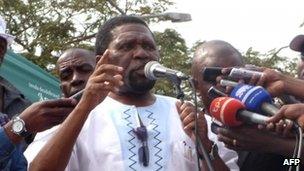
Isaias Samakuva leads the opposition UNITA party
Unita is a former rebel group that fought the MPLA-led regime from 1975 until the killing of its leader Jonas Savimbi by government forces in February 2002. It subsequently signed a peace agreement with the government, ending one of Africa's longest-running civil wars.
It has since become the main opposition party, but was weakened in March 2012 by the defection of senior officials who left to form the Broad Consensus for Angolan Salvation - Electoral Coalition (Casa-CE).
Unita leader Isaias Samakuva has said "democracy is finally coming to Angola. It is coming to Angola with Unita in power". He has promised to form a government "based on competence and not party affiliation".
What happened last time?
Angola last held parliamentary elections on 5 September 2008 in which the MPLA secured 82% of the vote, winning 191 of the 220 seats. Unita won 16 seats, down from the 70 it held in the previous legislature. Voter turnout was 87%.
What are the main election issues?
Economic hardship and poor governance remain core issues. There have been numerous demonstrations by youths and war veterans, protesting about economic misery in a country where the cost of living is among the highest in the world.
President Dos Santos has promised economic growth and a fairer distribution of wealth, while Mr Samakuva has said he "would embark on a national emergency programme" to tackle unemployment, housing, health care, education and social security.
What complaints have there been?
Unita has threatened to protest about the CNE's "electoral fraud". But MPLA spokesman Rui Luis Falcao Pinto de Andrade affirms the body's independence, while acknowledging that it is "facing some difficulties", which he says it will resolve.
Meanwhile, the Casa-CE alliance has complained that "the number of voters is unclear" and Unita has reported various irregularities in voter registration to the CNE.
The media have come under fire with accusations that the state media have been favouring the MPLA, but the complaints have been rejected by the media regulator, the National Social Communication Council (CNCS).
And the opposition media have been criticized over programme content, with the CNCS questioning the "accuracy" of information on Unita's Radio Despertar and faulting it for using "aggressive" language in its talk shows.
What is the security situation?
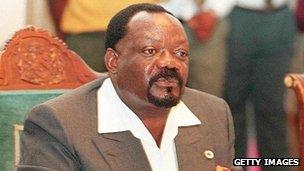
The death of former Unita leader Jonas Savimbi in 2002 ended Angola's civil war
Civil war veterans have threatened to blockade the polls if the government fails to pay them; an offer of $500 (£320) dollars a month has been rejected. Demonstrations in support of their claims have been suppressed by the authorities.
Meanwhile, Unita has alleged that the Angolan Armed Forces (FAA) and the Rapid Intervention Police have moved into pro-opposition areas "to create fear and coercively persuade people" to vote for the MPLA.
However, FAA chief Gen Geraldo Sachipengo Nunda has told FAA personnel that they should "behave with full respect for the constitution, with strict discipline and completely in line with the decisions regarding military conduct before, during, and after the election".
MPLA supporters have also been accused of harassing their opposition counterparts - sometimes violently - in various parts of the country.
The leader of the Southern African Development Community (SADC) team of observers, Tanzanian Foreign Minister Bernard Membe, has called for those running in the elections to show tolerance and moderation. The African Union has also sent a team of observers.
BBC Monitoring, externalselects and translates news from radio, television, press, news agencies and the internet from 150 countries in more than 70 languages. It is based in Caversham, UK, and has several bureaux abroad. For more reports from BBC Monitoring, click here
- Published18 May 2012
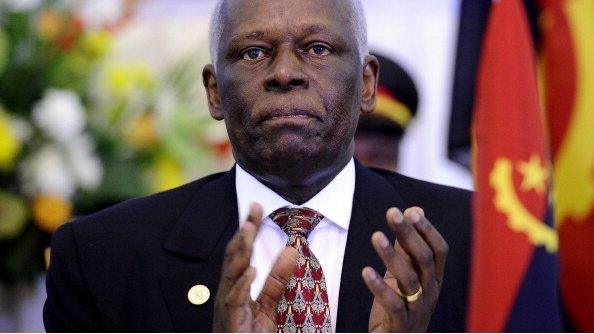
- Published30 April 2012
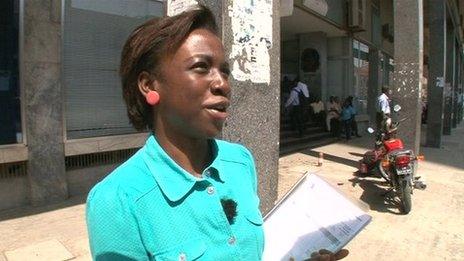
- Published21 February 2023
